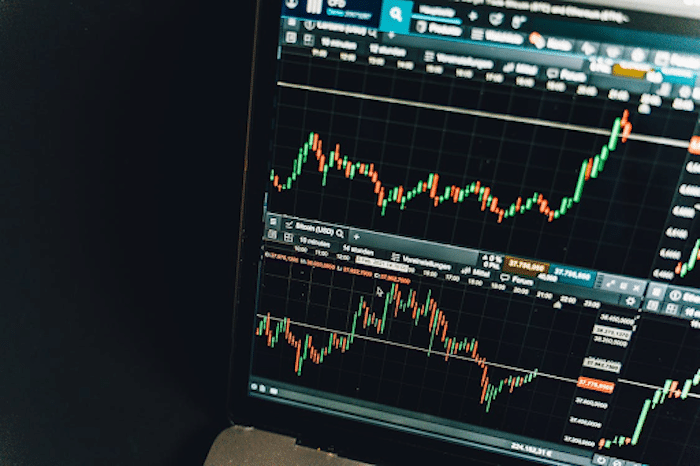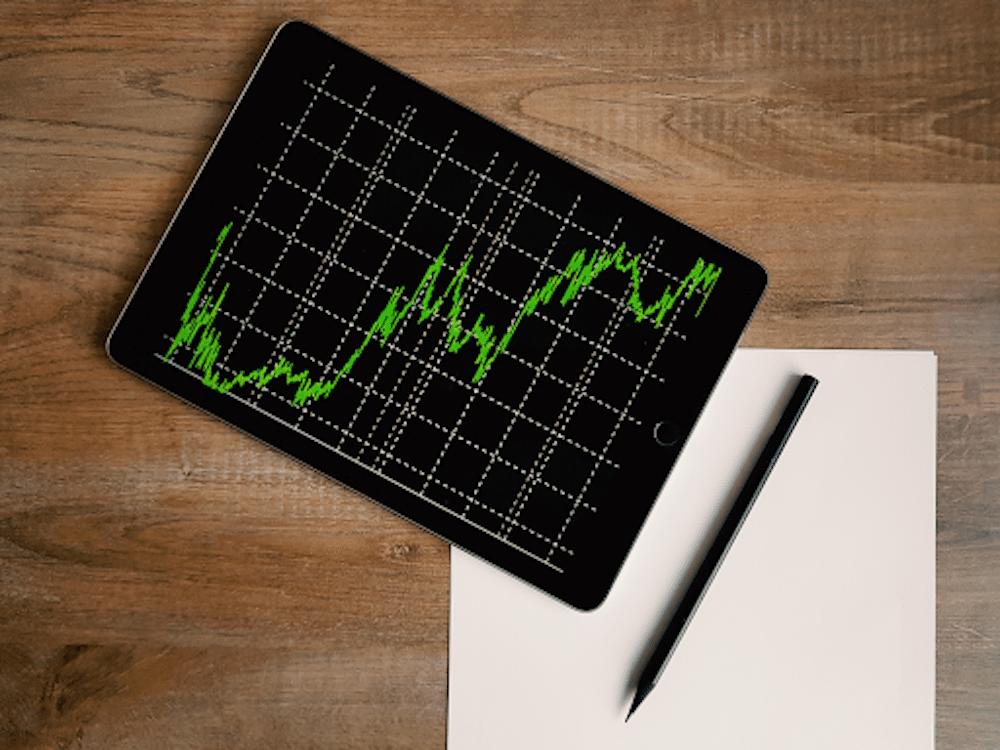Table of Contents
In a world where microseconds can spell the difference between profit and loss, the convergence of quantum computing and algorithmic trading stands poised to revolutionize the financial markets. As we plunge deeper into this new era of technological breakthroughs, the archaic ways of trading appear to be on the verge of obsolescence, paving way for swift, secure, and intelligent trading platforms nestled inside quantum computers. Unveil the secrets behind this phenomenon as we dive deep into an exploration of how quantum computing interlaces algorithmic trading, reshaping traditional trading strategies into something more advanced, sophisticated and predictive than ever before.
Quantum computing has the potential to transform algorithmic trading by enabling faster and more accurate data analysis, risk management, and predictive modeling. It can help traders identify patterns and trends in market data more quickly and perform complex simulations at a scale that is currently unattainable with classical computing. However, the development of quantum computing for practical use in finance is still ongoing, making it essential for financial institutions to explore its potential benefits and limitations as well as enhance their knowledge in this field.
Quantum Computing and its Impact on Algorithmic Trading
In the ever-evolving world of finance, technology continues to push boundaries and open new possibilities. One such technological advancement that has the potential to revolutionize algorithmic trading is quantum computing. Traditional computers operate using bits, which represent information as either a 0 or a 1. However, quantum computers utilize qubits, which can exist in multiple states simultaneously. This unique characteristic enables quantum computers to perform complex calculations faster and more efficiently than their classical counterparts.
Quantum computing’s impact on algorithmic trading extends far beyond just speed. By harnessing the power of qubits, these advanced machines can unlock new potentialities. The intricate and sophisticated nature of financial markets often involves analyzing vast amounts of data and running complex algorithms to identify profitable trading opportunities. Quantum computers have the ability to process and make sense of this data at an unprecedented scale, enabling traders to gain valuable insights and make more informed decisions.
For instance, imagine a scenario where a trader wants to analyze various market indicators, economic factors, and news sentiment to determine the best time to buy or sell a particular asset. With traditional computing methods, it may take hours or even days to process all this information. However, with quantum computing, this analysis could be completed in mere minutes or even seconds, giving the trader a significant edge in executing timely trades.
By leveraging quantum computing’s capabilities, algorithms used in algorithmic trading can be refined and enhanced. Complex mathematical models that were previously too computationally intensive can be efficiently executed by quantum computers. This opens up new possibilities for developing advanced strategies and improving the accuracy of predictive models.
In the emerging realm of quantum computing and algorithmic trading, the immediate Edge app stands out as a promising tool set to transform trading strategies. This AI-driven platform, which incorporates advanced algorithms and predictive analytics, is designed to assess the volatility and potential returns of various digital assets swiftly and accurately.
Immediate Edge excels in harnessing the power of quantum computing, processing large datasets at remarkable speeds, which enhances its forecasting accuracy. As traders adapt to the ever-evolving landscape of algorithmic trading, tools like the Immediate Edge app are proving invaluable, offering real-time insights that facilitate the development of more precise and profitable trading strategies.
Now that we understand how quantum computing is reshaping algorithmic trading beyond just speed, let’s explore some of the specific ways it is unleashing new potentialities in this field.
Beyond Speed: Unleashing New Trading Potentialities
Quantum computing’s impact on algorithmic trading goes beyond just accelerating computations. It enables traders to delve into uncharted territories and explore innovative trading strategies previously unimaginable. One such area is portfolio optimization. Traditional algorithms used in portfolio optimization aim to find an optimal allocation of assets based on factors such as risk, return, and correlation. However, quantum computers have the potential to revolutionize this process by simultaneously considering a multitude of variables and constraints.
For instance, instead of relying on historical data and simulation-based approaches, quantum computers can examine numerous combinations of asset allocations and instantly compute the most efficient portfolios that maximize returns while minimizing risks. This advanced optimization capability has the potential to significantly enhance portfolio management strategies and generate superior investment outcomes.
Furthermore, quantum computing can also open avenues for algorithmic trading in nonlinear markets. Complex financial systems often exhibit nonlinear behaviors and intricate interdependencies that are difficult to model using traditional methods. However, with quantum computing’s ability to analyze complex data sets simultaneously, traders can gain deeper insights into these nonlinear dynamics, leading to more accurate predictions and robust trading strategies.
Now, having explored the potential of quantum computing in algorithmic trading beyond speed and the new trading opportunities it presents, let’s delve into how it is reshaping market analyses and predictive models.
Reshaping Market Analyses and Predictive Models

The advent of quantum computing is poised to revolutionize the field of algorithmic trading by reshaping market analyses and predictive models. Traditional computational methods used in finance and trading will pale in comparison to the immense processing power and speed offered by quantum computers. With their ability to process huge volumes of data and perform complex calculations simultaneously, quantum computers can uncover patterns and correlations that were previously too complex for classical computers to identify.
For instance, hedge funds and investment firms can harness quantum computing’s capabilities to analyze vast amounts of financial data in real-time, identifying potential market trends and opportunities for profitable investments. By utilizing sophisticated quantum algorithms, traders can respond swiftly to changes in the market, enabling them to make better-informed decisions and potentially reap higher returns.
Moreover, the integration of quantum computing with machine learning techniques can enhance predictive models used in trading strategies. Quantum machine learning algorithms can handle large-scale datasets more efficiently, leading to more accurate predictions and risk assessments. This advanced level of analysis has the potential to unlock new strategies and approaches within algorithmic trading.
As quantum computing opens up new opportunities for traders, it also brings about an array of security considerations that must be addressed to ensure safe transactions and protect sensitive financial information.
Security Considerations in Quantum-era Trading
While the potential benefits of quantum computing in trading are immense, it also raises significant security concerns. The inherent power of quantum computers threatens current encryption systems that underpin secure financial transactions. Traditional cryptographic methods used in online banking, stock exchanges, and other financial institutions may become vulnerable to brute force attacks or decryption through quantum algorithms.
Imagine a scenario where a hacker gains access to sensitive financial information due to a vulnerability caused by obsolete encryption techniques. The consequences could be catastrophic, leading to substantial financial losses for individuals as well as businesses.
To mitigate such risks, researchers are actively developing post-quantum cryptographic algorithms that can withstand the computational power of quantum computers. These new encryption methods aim to safeguard sensitive data and ensure secure financial transactions in a quantum-era trading landscape.
Quantum-resistant encryption techniques, such as lattice-based or code-based cryptography, are being studied and tested to provide robust security for future decentralized trading platforms.
However, the transition to quantum-resistant encryption is not straightforward and will require significant changes to existing infrastructure and systems. Financial institutions must be proactive in adopting these new security measures to protect their clients’ assets and maintain trust.
As we navigate the realm of quantum-era trading, it becomes imperative for businesses to adapt their strategies to effectively harness the potential of quantum computing while ensuring adequate security measures are in place.
Adapting Business Strategies to Quantum Computing
As the era of quantum computing rapidly approaches, businesses across various industries are being forced to adapt their strategies to harness the potential of this groundbreaking technology. The realm of algorithmic trading is no exception. With its ability to process vast amounts of data and calculate complex mathematical equations at incredible speeds, quantum computers hold the promise of transforming trading strategies and revolutionizing the financial markets.
Businesses in the trading industry must be proactive in preparing for the advent of quantum computing by understanding its capabilities and limitations. They need to assess how quantum algorithms can be utilized to gain a competitive edge in developing more accurate forecast models, optimizing portfolio management, and executing trades with lightning-fast precision.
Furthermore, businesses should consider investing in quantum-resistant encryption techniques to safeguard sensitive trading data from future threats posed by quantum computers. Developing robust cybersecurity measures will become increasingly crucial as quantum computers possess the power to break existing cryptographic systems.
In order to adapt their business strategies effectively, organizations need to invest in research and development efforts focused on exploring the applications of quantum computing technology within the realm of algorithmic trading. Collaboration with experts in both quantum computing and financial markets can provide valuable insights and guidance for navigating this transformative landscape.
Now that we have examined the importance of adapting business strategies to quantum computing, let us delve into the crucial aspect of preparing for the inevitable quantum leap in trading.
Preparing for the Quantum Leap in Trading
The imminent arrival of quantum computing presents unprecedented opportunities and challenges for traders looking to stay ahead of the competition. To prepare for this quantum leap, traders must first familiarize themselves with how quantum algorithms function and how they can be applied within their specific trading strategies.
Quantum algorithms offer the potential to solve complex optimization problems more efficiently compared to classical algorithms. Traders can explore ways to leverage these algorithms in tasks such as portfolio optimization, risk assessment, market analysis, and trade executions. By incorporating quantum algorithms into their trading systems, traders can gain a significant advantage in terms of speed, accuracy, and profitability.
However, it’s important to note that quantum computing is still in its early stages, and the development of practical quantum algorithms for trading applications is an ongoing process. Traders must keep abreast of the latest advancements in quantum computing research and stay flexible to adapt their strategies as new possibilities emerge.
For instance, a trader might explore the use of quantum machine learning algorithms to analyze complex financial data and uncover patterns that were previously inaccessible with classical computing techniques. This could potentially lead to more accurate forecasting and better-informed trading decisions.


